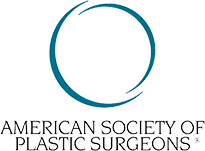Smoking and Elective Plastic Surgery: Some Surgeons Say “No” to Specific Procedures, PRS Article Reveals
For Immediate Release: January 31, 2002
ARLINGTON HEIGHTS, Ill. – Not all cosmetic plastic surgery procedures are created equal when it comes to smokers, reports the January issue of Plastic and Reconstructive Surgery®, the official medical journal of the American Society of Plastic Surgeons (ASPS). Some board-certified plastic surgeons limit the cosmetic surgery procedures they perform on smokers because smoking increases the risk of pulmonary complications and can impede wound healing, which may decrease the quality of surgical results.
Rod J. Rohrich, MD, and colleagues at the University of Texas Southwestern Medical Center report survey results from 955 board-certified plastic surgeons about their practice standards regarding treatment of patients who smoke. The survey was distributed by the American Society for Aesthetic Plastic Surgery.
Ninety percent of the board-certified plastic surgeons surveyed said they perform elective plastic surgery on smokers. Approximately 50 percent of this group limit the type of procedure they perform on smokers.
“Tobacco smoke contains more than 3,800 identified substances, of which nicotine and carbon monoxide are two of the most detrimental to wound healing and may cause pulmonary complications,” said Dr. Rohrich. “This impaired wound healing may dramatically decrease the final cosmetic outcome.”
Eighty-eight percent of plastic surgeons surveyed said they would perform procedures that did not involve skin flaps or skin separation, such as nose reshaping, breast augmentation or liposuction. However, only 39 to 54 percent of plastic surgeons would perform procedures involving more skin manipulation, such as breast reduction, tummy tucks, or face lifts.
Sixty percent of surgeons surveyed said they “usually” or “always” perform a less invasive technique on smokers. While a third of respondents said they “sometimes” change their technique.
To help smokers reduce the risk of complications, some plastic surgeons require patients to quit smoking prior to surgery. Just over 40 percent of those polled require patients to quit for a time period of two weeks. To help patients “kick the habit,” some plastic surgeons offer patients smoking cessation aids, such as oral medication or nicotine patches.
The majority of the surgeons polled said they would cancel a patient’s scheduled surgery if he/she did not follow their guidelines.
According to the ASPS, 7.4 million Americans had cosmetic plastic surgery in 2000. The ASPS reminds anyone considering plastic surgery that quality patient care and a successful surgical outcome are the result of the patient and surgeon working together. Careful selection of the plastic surgeon can greatly enhance the possibility of a successful surgical outcome. Patients should consult an ASPS member certified by the American Board of Plastic Surgery (ABPS), the only board recognized by the American Board of Medical Specialties to certify a surgeon in plastic surgery of the face and all areas of the body.
ABPS-certification signifies that the surgeon has had formal training in an accredited plastic surgery residency program and has passed a comprehensive exam on cosmetic and reconstructive surgery, which ensures that the surgeon has the training to understand and individualize treatment for all patient conditions.
The American Society of Plastic Surgeons is the largest organization of board-certified plastic surgeons in the world. With more than 6,000 members, the society is recognized as a leading authority and information source on cosmetic and reconstructive plastic surgery. ASPS comprises 94 percent of all board-certified plastic surgeons in the United States. Founded in 1931, the society represents physicians certified by The American Board of Plastic Surgery or The Royal College of Physicians and Surgeons of Canada.
